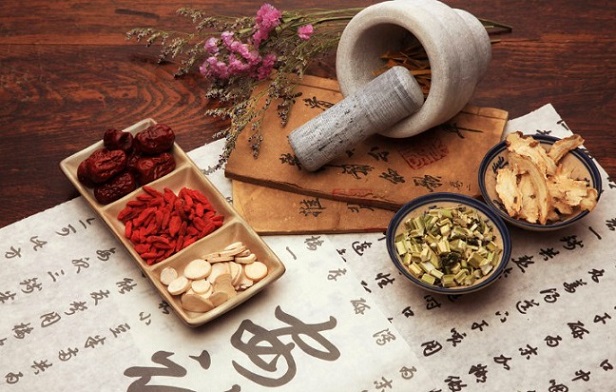The Traditional Chinese Medicine Formula Baihe Dihuang Tang Shows Strong Natural Antidepressant Power
Nikhil Prasad Fact checked by:Thailand Medical News Team Nov 26, 2025 3 months, 5 days, 21 hours, 2 minutes ago
TCM News: Ancient Herbal Formula Shows New Promise
A centuries-old traditional Chinese remedy is gaining modern scientific attention after researchers found it may naturally lift mood and support brain health. A new study by teams from Tianjin University of Traditional Chinese Medicine (TCM) and Hangzhou City University reveals how Baihe Dihuang Tang (BDT), a simple two-herb formula made from lily bulb and rehmannia root, helps ease depression by protecting key brain chemicals and repairing stressed nerve connections. These findings add modern science to what healers have observed for generations. This
TCM News report expounds on the study as to how this Traditional Chinese Medicine herbal formula could be repurposed to treat mental health issues involving depression.
 Ancient Baihe Dihuang Tang is shown to boost serotonin and repair brain pathways linked to depression
How the Herbal Remedy Fights Stress and Low Mood
Ancient Baihe Dihuang Tang is shown to boost serotonin and repair brain pathways linked to depression
How the Herbal Remedy Fights Stress and Low Mood
Researchers used a well-established stress model in mice to mimic depression caused by constant pressure. When the stressed animals were given BDT, their behavior changed noticeably. They struggled less in tests that measure despair, moved more confidently in open spaces, and showed fewer signs of anxiety. These improvements pointed scientists toward biochemical changes happening inside the brain.
One of the most important discoveries was how BDT affects serotonin, the chemical often called the “happiness hormone.” Normally, an enzyme called MAOA breaks down serotonin too quickly during depression. Scientists found that stress sharply increased MAOA levels, causing serotonin to drop. But animals treated with BDT had much lower MAOA levels and a healthier balance between serotonin and its breakdown product. This means the herbal formula helped the brain hold on to more serotonin—similar to how some antidepressant drugs work, but through a more natural pathway.
Repairing the Brain’s Communication System
The study also revealed that BDT boosts the brain’s self-repair tools. When serotonin levels rise, a protective protein called BDNF becomes more active. BDNF strengthens nerve connections and supports learning, memory, and emotional balance. In stressed animals, levels of BDNF and its partner receptor TrkB dropped sharply, but BDT restored both. This effect helped key proteins responsible for healthy nerve-to-nerve communication—such as PSD-95 and Synapsin-1—to recover as well.
By improving serotonin availability and enhancing the BDNF–TrkB pathway, BDT not only improved mood but also helped rebuild the very structures the brain uses to process emotions.
Natural Compounds Behind the Benefits
The research teams also mapped out which natural ingredients in BDT may be responsible for these healing effects. Compounds such as ferulic acid, caffeate, stigmasterol, eugenol, and cis-anethole were identified as likely contributors, especially because several of them directly interact with MAOA
and serotonin-related receptors.
Conclusion
This study provides fresh scientific support for Baihe Dihuang Tang as a promising natural aid for depression. By reducing MAOA activity, raising serotonin levels, restoring BDNF-TrkB signaling, and repairing nerve connectivity, BDT acts on multiple pathways at once—a feature that may make it useful for people who do not respond well to single-target drugs. More research in humans is needed, but the findings highlight how traditional remedies can offer modern therapeutic possibilities.
The study findings were published in the peer reviewed journal: Pharmaceuticals.
https://www.mdpi.com/1424-8247/18/12/1786
For the latest
TCM News, keep on logging to Thailand Medical News.
Read Also:
https://www.thailandmedical.news/articles/tcm-news
